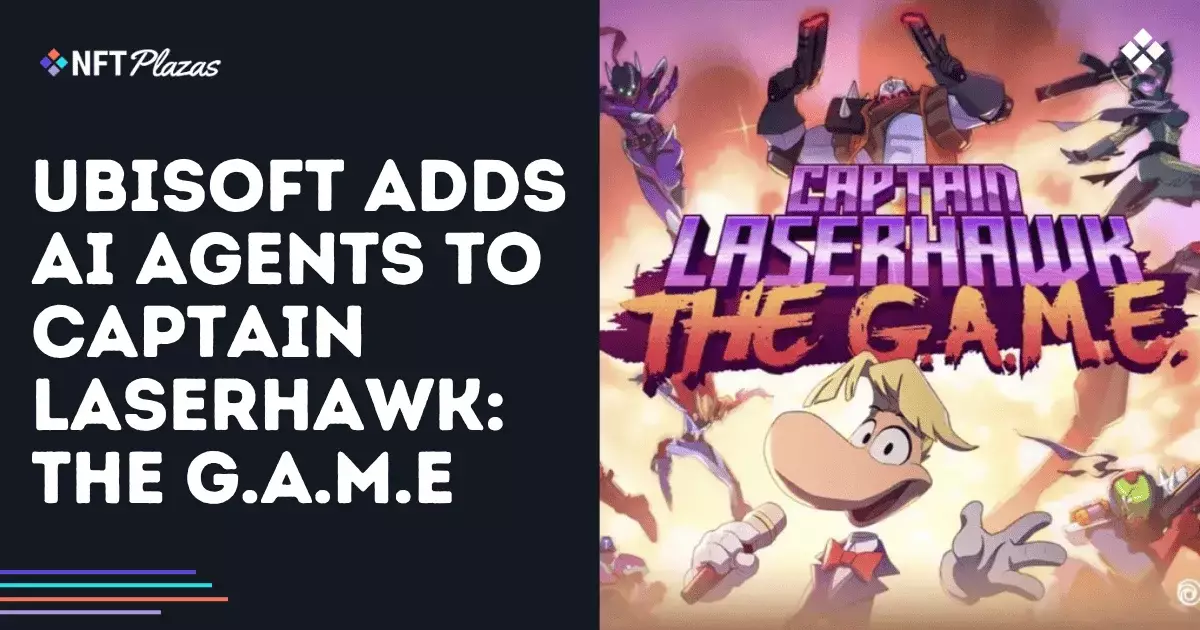Ubisoft’s latest venture into blockchain gaming with “Captain Laserhawk: The G.A.M.E.” signals a daring departure from traditional game design, embracing full-scale AI autonomy intertwined with NFT assets. But beneath the surface of this technological innovation lies a strategic gamble that could redefine the user experience — one that blurs the line between player control and algorithmic dominance. While some may hail it as the future of seamless, autonomous gameplay, a critical eye reveals potential pitfalls, from overdependence on AI to issues of transparency and player agency.
This move towards AI-driven governance on blockchain leverages the immutable nature of NFTs, assigning each Niji Warrior avatar a set of traits that inform its decision-making abilities. The ambition is to create a persistent, self-sustaining game universe where, even in player absence, systems continue to evolve and act on their own. From an ideological perspective rooted in conservative liberalism—where individual agency and accountability are prized—this development presents a paradox. It champions decentralization but risks undermining players’ direct involvement, replacing meaningful interaction with autonomous agents that make, justify, and record decisions without genuine human oversight.
While it is tempting to celebrate progress, Ubisoft’s approach raises questions about the depth of player engagement. Are people really involved, or are they merely spectators as AIs carry out limited, predetermined roles? In essence, the game blurs lines between participatory democracy and technocratic governance, subtly shifting power away from individual players and into the hands of algorithmic entities. This could lead to a devaluation of personal skill and judgment, replacing human decision-making with cold, trait-based AI votes. The sense of ownership and responsibility, central to the gamer’s identity, risks dilution in favor of an ever-evolving digital governance system.
The Promise of Transparency—But at What Cost?
One of the most touted features of Ubisoft’s new AI agents is transparency: decisions are logged on the Aleph Cloud, providing an audit trail of actions and reasoning based on NFT metadata. This approach seems noble—an attempt at accountability within an inherently opaque system. But transparency in a blockchain context is not without its limitations. Data logging can showcase how decisions are made, yet it doesn’t necessarily translate to understanding or trust. Are players truly equipped to interpret the reasoning behind AI choices? Or will a complex web of personality traits linked to NFTs only serve to obfuscate, rather than clarify, the decision-making process?
Furthermore, the reliance on AI to interpret player intent introduces another layer of concern. While adaptive guidance can enhance gameplay, it also opens Pandora’s box of potential biases and misinterpretations. An AI that is tasked with acting on behalf of an inactive or overwhelmed user could make decisions misaligned with the player’s true preferences—decisions that are then recorded permanently on the blockchain. These issues are not trivial; they threaten the integrity of the player’s digital identity and, ultimately, trust in a system that closely ties ownership rights to autonomous AI actions.
In a broader context, Ubisoft’s experiment suggests a future where gaming ecosystems are governed less by human players and more by algorithmic entities. While this might streamline operations and reduce the need for constant player input, it conflicts with core liberal values of individual agency. Instead of empowering users, it risks creating a dependency on systems that operate behind the scenes, making the digital space less of a community and more of a curated, controlled environment.
Autonomy versus Control: The Real Power Struggle
The core tension with Ubisoft’s AI experiment lies in the struggle between autonomy and control. The game’s architecture gives AI agents operational independence—agents that analyze proposals, cast votes, and adjust their behavior over time based on the NFT’s traits and player interactions. This autonomy could herald a new era of self-regulating game worlds that sustain themselves beyond human oversight. However, it also raises red flags about how much leverage players genuinely retain.
By permitting AI to act on their behalf, players surrender a degree of control that has traditionally defined gaming—whether it’s strategic decisions or social interactions. While players can override these agents, the system’s reliance on predefined personality traits and historical data means that AI decisions could sometimes feel detached or misaligned with expectations. As these systems grow more complex, the potential for unintended consequences increases, especially if players are unable or unwilling to scrutinize each decision thoroughly.
Within a center-right liberal framework, this shift is troubling. It indicates a move toward technocratic governance within digital spaces—systems that, while ostensibly designed to enhance experience, could ultimately diminish personal responsibility. The danger is that players begin to see AI as an authoritative middleman, eroding the principle that true agency comes from direct involvement and human judgment. The game’s evolving design could inadvertently represent a step toward corporate-controlled digital environments where algorithms dictate outcomes more than human beings.
Though Ubisoft insists that moderation and containment measures exist to prevent harmful content, the broader implication remains: reliance on AI systems for governance risks creating centralized points of failure and unintended biases. Moreover, as AI agents are embedded more deeply into gameplay mechanics, the critical notion of individual accountability diminishes, replacing it with a collective, machine-driven evolution that may be less democratic and more deterministic.
In summation, Ubisoft’s bold steps into AI and blockchain in gaming mark a significant technological milestone. Yet, they also serve as a cautionary tale about losing sight of core values that underpin autonomous, personal agency—values that are essential not only in gaming but in broader societal contexts. Whether this experiment becomes a blueprint for the future or a fleeting curiosity depends largely on how these systems are managed, controlled, and ultimately integrated into the gamer’s realm of responsibility.

